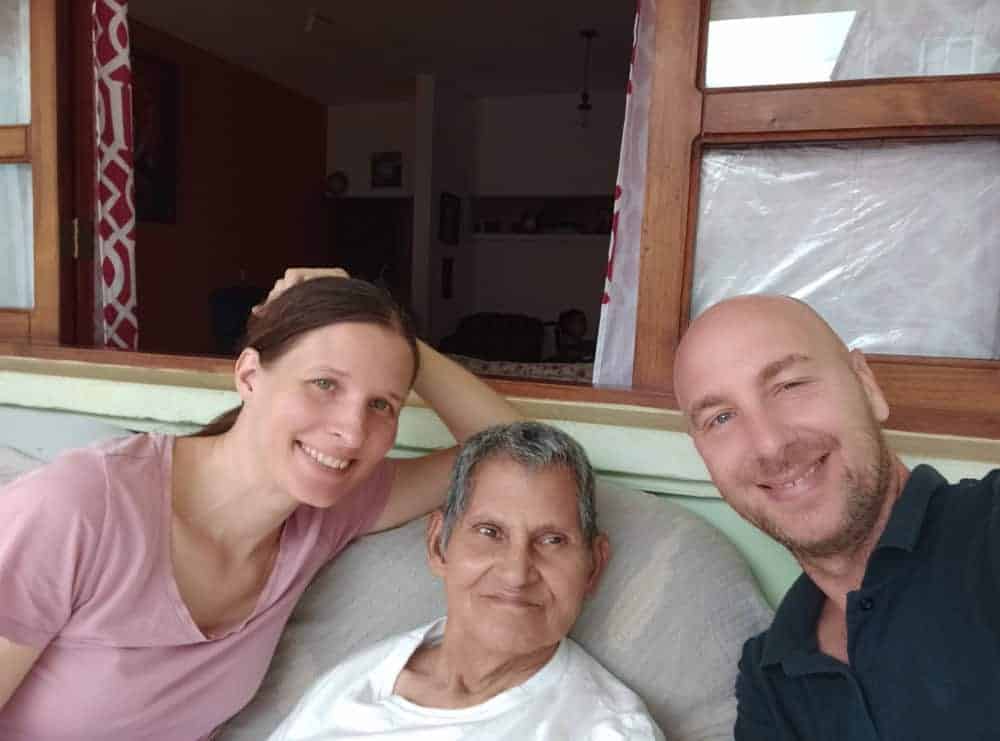In Honduras, Easter is deeply imbued with symbolism and tradition. Processions, the Way of the Cross, prayers, and fasting all play a significant role in this holiday, and Hondurans, including those who do not regularly practice the Christian faith, participate en masse in these events.
Preparations for Easter at our house began a week in advance. First, we assistants and volunteers had to organize ourselves. Some assistants took the holiday as an opportunity to vacation, spending the festive period at home with their families.
Each assistant in the house is entitled to two days off per week.
Silva and I, who are exclusively attached to the house, offered to make our days off available during the festive week, as there were too few assistants to perform the daily tasks of cleaning, caring for, and accompanying our boys and girls.
Otherwise, Karina, the house manager, would have been alone and unable to manage everything that needed to be done. However, this meant that we would have some extra days off the following week to rest.
Although it is now much more exhausting, we do not regret being actively involved in organizing the celebration.
Love to the End
First, the washing of feet.
On Holy Thursday, we reenact the act that Jesus performed just before he was handed over to the authorities.

“Before the Passover feast, knowing that his hour had come to depart from this world to the Father, having loved his own who were in the world, he loved them to the end.”
… Knowing that the Father had given all things into his hands, and that he had come from God and was going to God, he rose from supper, laid aside his garments, and taking a towel, tied it around himself. Then he poured water into a basin and began to wash the disciples’ feet and to wipe them with the towel that he had tied around himself.
John 13:1, 3-5
We washed each other’s feet
This profoundly symbolic act, which Jesus intended to show the kind of relationship we should have towards one another, in humility and love, demonstrates the love that God harbors for each of us.
So, in Arc’s House, we performed the symbolic act of washing feet. We used one basin with water, one empty basin, and a small pitcher for pouring.
Our boys and girls were already familiar with the ritual and openly looked forward to it.

Each of us washed the feet of the person sitting next to us. With the pitcher, we first poured water over their feet and then dried them with a towel, much like Jesus did with his disciples.
…and we shared the bread.
In the evening, Silva baked bread. We gathered around the table, which was covered with a white cloth and festive table settings. We placed the bread in the middle of the table. After dinner, we cut it and shared it among ourselves.
The kind of bread we bake is rare in Honduras. In fact, most people do not know how to make it. Wheat and corn tortillas are staples of daily nutrition in Central America, but leavened bread is almost not consumed.
Today, on Good Friday, the entire house will attend the procession of Jesus’ burial in the evening, and we will dine on traditional fish soup made from dried fish.

Karina, an excellent cook, began preparing the fish several days earlier, and today, she rose early to have the soup ready by noon, when we would have lunch.
The answer is on the Cross
I will write about the food we eat in Honduras in my next post. For now, I would like to take this opportunity to wish you a spiritually rich Easter holiday.
Jesus on the cross should not evoke shame or guilt. His sacrifice would miss its meaning if we only lamented his suffering and loneliness on the cross.

What does a person feel who allows himself to be humiliated and dies for another—for the person who betrays him and cannot (or will not) return the same measure of love?
When we look at the crucifix, I must ask myself: ‘What about me?’ Could I sacrifice myself for another if necessary? Not just for a friend, child, or spouse, but also for someone who hurts, despises, and scorns me?”
Looking at the crucifix and contemplating Jesus’ suffering will give us the answer and all the strength needed for such deeds.



